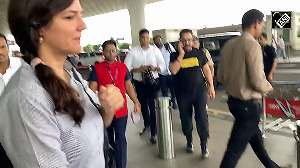A top leader of the banned Tehrik-e-Taliban Pakistan has said that his group will seek mediation by countries like Saudi Arabia if the government offers to hold peace talks.
"Our shura (council) will decide whether and when can we enter into talks with the government, with the military but I think we will like to involve countries we trust...they are in the Arab world. Let's say Saudi Arabia," said Pakistani Taliban commander Maulvi Waliur Rehman Mehsud.
Mehsud, the deputy of Pakistani Taliban chief Hakimullah Mehsud, further said that the group had not yet received any "direct" offer of talks from the government. "Till now, we don't have any direct peace offer. Our shura will sit down when we are approached," he told The Express Tribune newspaper.
"That is how we operate. There is one centralised body to take important decisions," he said without mentioning who are members of the council or who heads it. Mehsud said Pakistani Taliban wanted a "guarantee" that once any deal is struck with the government, it would be enforced.
Recent reports have said Sheikh Khalid, a militant commander from Mardan district of Khyber-Pukhtunkhwa, heads the shura though Hakimullah Mehsud makes the final decisions in most matters.
A meeting of Pakistan's political and religious parties convened by Prime Minister Yousuf Raza Gilani last month had passed a resolution advocating dialogue and peaceful methods to restore peace in the country's troubled northwest and tribal belt.
The decision by the All Parties Conference apparently reflected a significant shift in Pakistan's war on terror policy.
It came in the wake of US accusations that the Inter-Services Intelligence agency was backing the Haqqani network in waging a proxy war in Afghanistan. Gilani subsequently said his government was willing to hold talks with militant groups without the pre-condition that they should disarm.
The All Parties Conference had decided that the proposed dialogue would be spearheaded by a "national institutionalized mechanism" and not by the government or the military.
A participant of the All Parties Conference said the new mechanism might be based on the Afghan High Peace Council that was set up last year to reach out to the Taliban.
"It would not be exactly the same but is likely to have striking similarities. Parliament and the politicians will have a central role in it," the unnamed leader told the daily.







